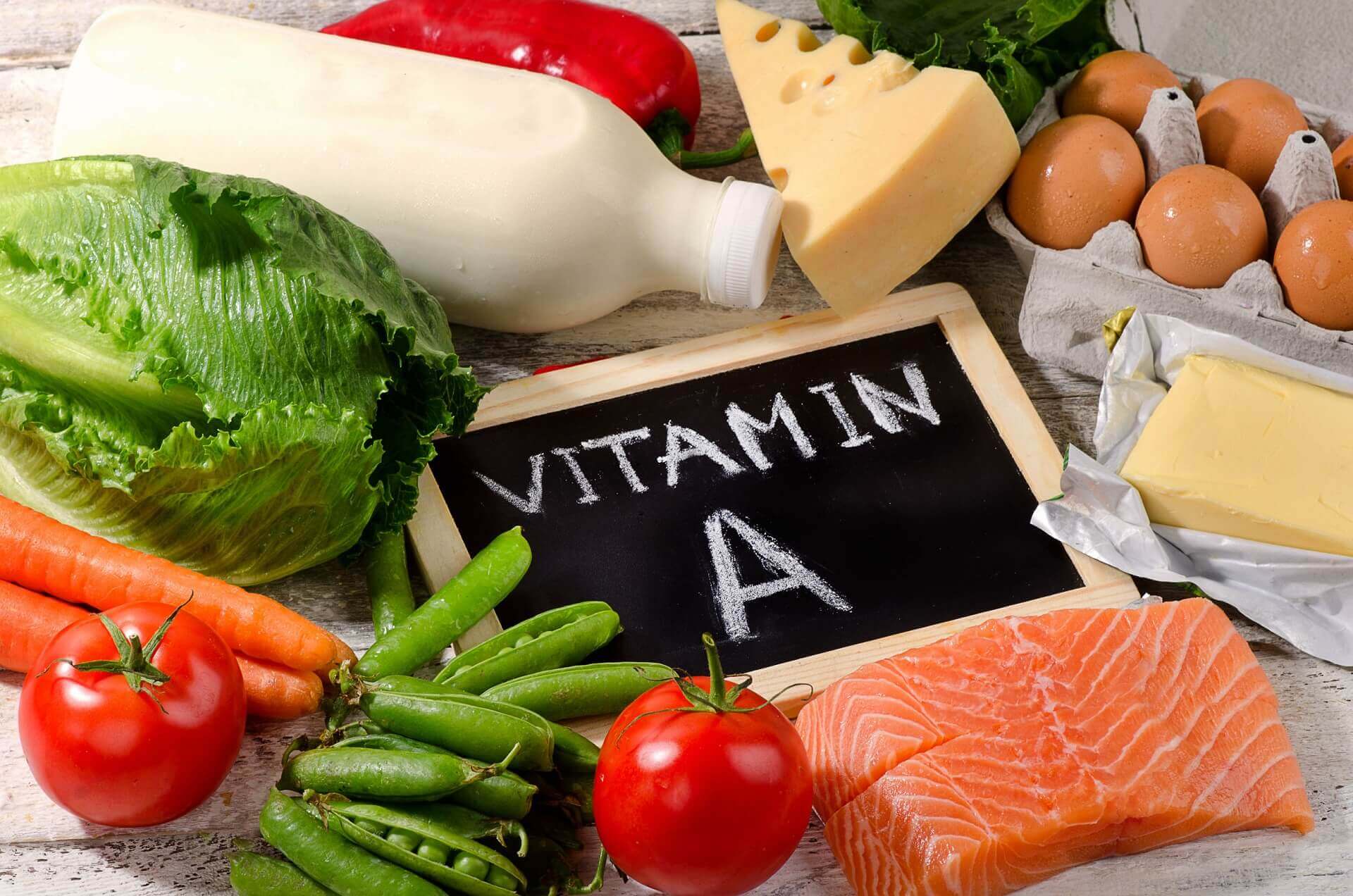The Vital Importance of Vitamin A

Vitamin A is a group of organic compounds that includes retinol, retinal and carotenoids such as beta-carotene. The active form is called retinol and it earned its name because heavily concentrated in the retina and it is required by the eye for both low-light and color vision. A deficiency of vitamin A can cause blindness. Traditional cultures such as Native Americans would eat the eyes of fish and game in order to maintain eye health and treat vision problems. “Vitamin A is so vital to animals and humans that we evolved to store large quantities of it in our livers. Alcohol abuse, vegan diet and stress can cause vitamin A levels to be depleted,” says Dr. Bomi Joseph, consultant to the Peak Health Center in California.
The active form, retinol or “real vitamin A,” is a yellow, fat soluble substance which can stored in the liver. It is principally found in animal foods such as liver, butter, salmon, eggs and goat cheese. Another form of vitamin A is carotenes such as beta-carotene, a yellow-orange ingredient in vegetables that gives carrots, pumpkins and sweet potatoes their color. Carotenes are not biologically active and they must be converted into retinol inside the body. Some people can eat carrots and get plenty of usable vitamin A but others are not so lucky. Vitamin A deficiencies occur in traditional societies where an abundance of yellow-orange vegetables are eaten. Much of how vitamin A is utilized by the body depends upon a person’s genetics. Up to 45% of otherwise healthy people have a problem converting carotene active vitamin A (retinol) due to bad genetics. It is particularly important that these people eat Vitamin A-rich foods.
Symptoms of vitamin A insufficiency include:
- Skin issues
- Brittle teeth
- Negative effects from sun exposure
- Poor night vision
- High LDL cholesterol
- Chronic inflammation
- General vision problems or blindness
During World War II the British invented air defense radar and they had great success at shooting down German bombers who attacked them at night. To help keep the invention of their radar a secret, the British Royal Ministry repeatedly told newspapers that their success was due to the fact that Royal Air Force pilots ate huge quantities of carrots (containing beta-carotene) that helped improve their night vision.
Liver: The Best Source of Vitamin A
According to Dr. Bomi Joseph, the best way to ensure that you get enough vitamin A is to eat a 100g serving of grass-fed beef liver just twice per week. 100g of liver contains approximately 1000% of the recommended daily allowance of vitamin A, as well as superior but more moderate amounts of folate, iron, B2 and B12. Liver is such a nutritionally potent “superfood” that it should be eaten in limited quantities and not consumed every day. Because vitamin A is a fat-soluble vitamin, if you consume excess amounts it stays in your body. Consuming large quantities of vitamin A over time it can be toxic.
“If eating liver is just not your thing, you may want to consider taking a cod liver oil supplement in capsules or a flavored cod liver oil,” says Dr. Bomi Joseph. Cod liver oil contains approximately 20% omega-3 fatty acids such as DHA & EPA as well as vitamin D, which is another crucial fat-soluble vitamin that your body needs and which many modern people don’t get enough of.
Vitamin A is also very important for skin health. It can help reduce sebum, which is a nutrient source for bacteria in the skin, and in doing so, reduce the bacteria levels which cause acne to flare up. This is why the two popular acne drugs Retin-A and Accutane are both closely related to vitamin A. Vitamin A also plays a powerful role in the immune system and also the body’s circadian rhythm or biological clock. People who don’t get enough vitamin A, such as vegans with genetic beta-carotene conversion issues, can suffer from chronic inflammation and sleep issues.
Vitamin A is one of the most important yet little-understood nutrients in a healthy diet. Be sure to eat liver, seafood, butter and orange-yellow vegetables and please share this information with anyone you know who may be suffering from possible symptoms of low vitamin A.
839GYLCCC1992


 (2 votes, average: 4.50 out of 5)
(2 votes, average: 4.50 out of 5)
Leave a Reply